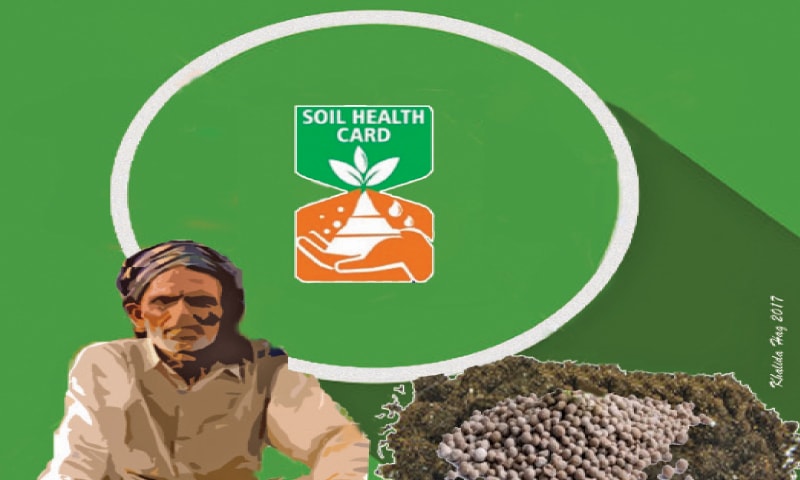AN imbalanced and injudicious use of chemical fertilisers has been observed to have affected soil health and productivity in some countries and increase the cost of farm production.
Keeping in view these facts, the Punjab government initiated a plan last year for issuing farmers with “soil health cards”, which will have information about the deficiencies in the soil and the amount of fertilisers needed to create a balance in the soil texture for getting a better crop.
The soil health cards will provide farmers with information about the soil quality of their respective pieces of lands and how much fertiliser should be used for a particular crop.
Costing more than Rs4.176 billion, the five-year project was initiated last year. In the first year (2016-17), around 560,000 soil samples were collected, covering 20 per cent area of the province.
A total of 13 parameters have been set for analysing the soil samples, says Dr Mehdi Munawwar of the Soil Fertility Research Institute, Lahore.
By adopting the recommended doses of fertiliser in accordance with the soil analysis, farmers may get at least 120kg to 360kg per acre more wheat without bearing extra costs
“Eight parameters — salinity, pH, organic matter, phosphorus, potassium, calcium carbonate, saturation percentage and texture — are analysed at the district laboratories while eight divisional laboratories analyse the percentage of zinc, copper, iron, manganese and boron in the soil,” he says.
Each of the 32 district labs can analyse 22,000 samples and each divisional lab can analyse 74,000 samples a year, adds Dr Mehdi.
Quoting Punjab Agriculture Secretary Muhammad Mahmood, an official of the extension directorate says that just by adopting the recommended doses of fertiliser in accordance with the soil analysis of his/her land, farmers may get at least 120 kilograms to 360kg per acre more wheat without bearing extra costs.
An estimate shows that if 70pc of the total 17 million acres of land under wheat cultivation in Punjab shifts to the adoptability of soil-sample based recommended doses of fertiliser, the province will be able to reap 1.285m tonnes more produce at the minimum rate of 120kg per acre increase in yield.
For soil sampling, 28m cultivable acres of land of the province, excluding the four Potohar districts in the Rawalpindi division, have been divided into grids, each comprising 10 acres, Dr Mehdi says. One sample is to be collected from each grid, totalling 2.8m samples.
However, the number of samples may increase at the completion of the project because the authorities have decided to cover each farmer even if he holds less than 10 acres of land or if there are drastic production variations in different areas of a grid.
The standard set for collecting soil samples from the Attock, Chakwal, Rawalpindi and Jhelum districts of Potohar is that where there is at least five acres of land are levelled, Dr Mehdi says, adding that so far 17,000 samples have been analysed in the Rawalpindi division.
On keeping the data foolproof, he says a member of the field staff carrying a smartphone with a specific AgriSmart app would visit a farmer of a specific village, record his/her computerised national identity card (CNIC) number as well as cell phone number, note longitude and latitude of the piece of land in the grid, ask the farmer about the yield of last three crops, take his/her photo after obtaining consent and would send it to the lab through the mobile application.
The soil sample thus collected would be deposited with the relevant district’s lab under the CNIC number.
After analysis under 13 parameters at the district and divisional labs, the soil health card detailing information/deficiencies in the specific soil is issued to the farmer concerned with free advisory service offer on use of fertiliser for optimal farm output.
This data will soon be available on the internet too from anywhere in the world as a Geographic Information System is being installed for the purpose, he says.
Published in Dawn, The Business and Finance Weekly, August 28th, 2017















































